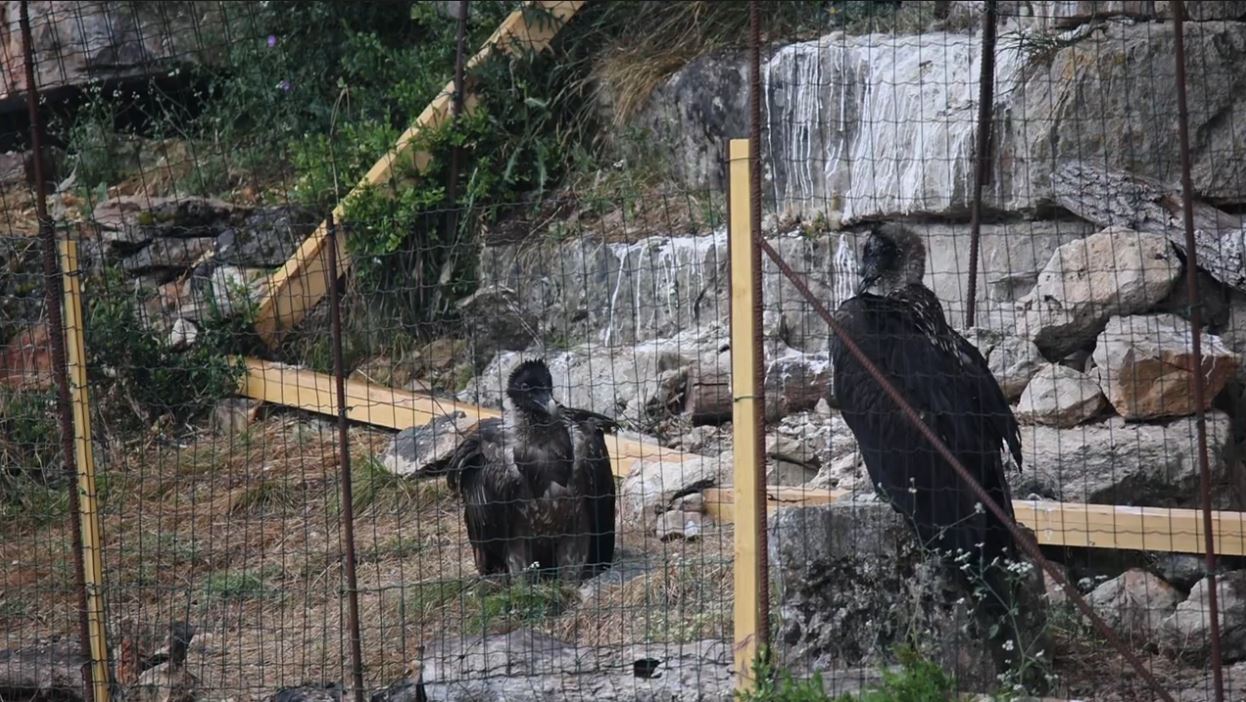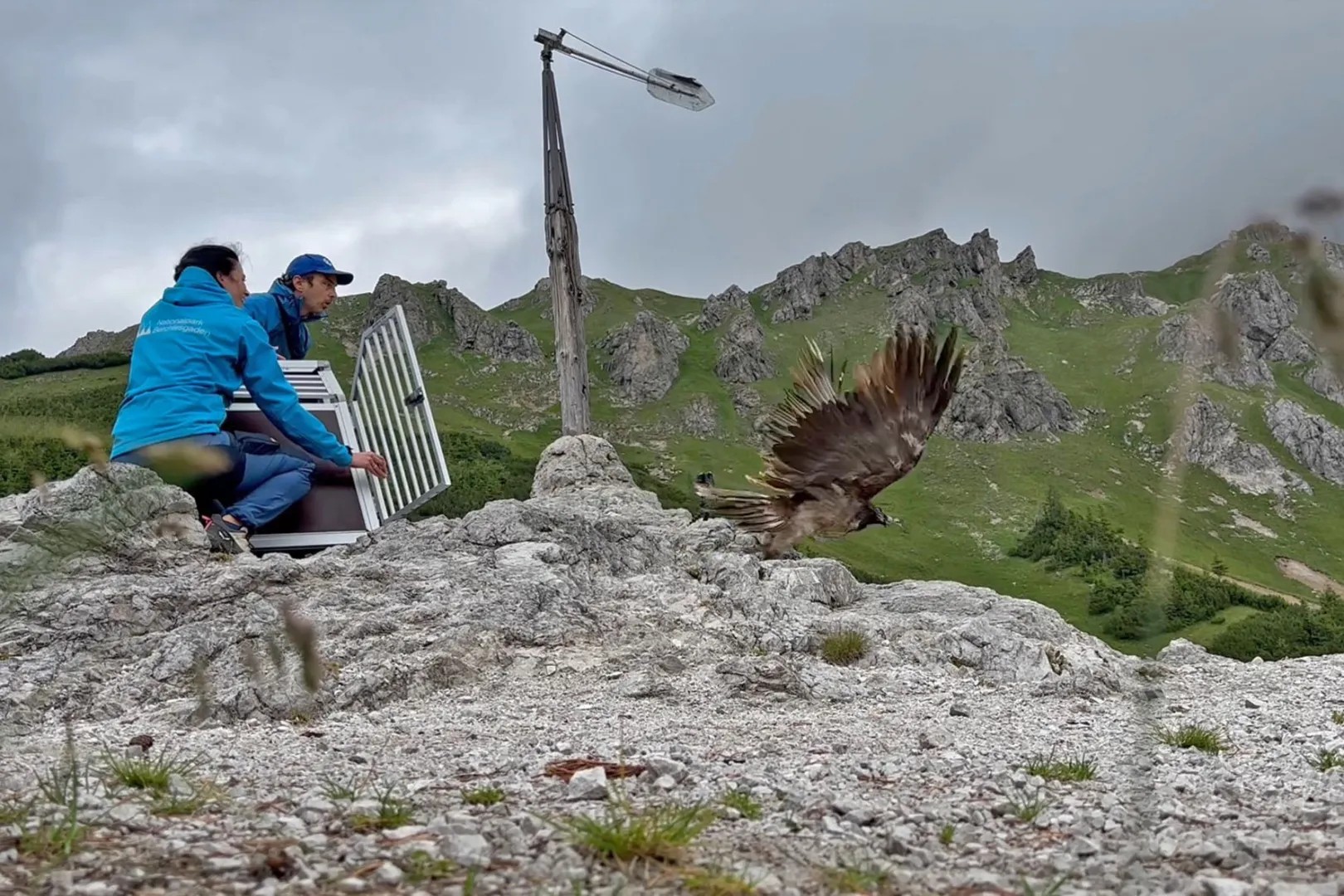
Last Autumn we launched a campaign, Bearded Vultures on the Move, to transfer 19 Bearded Vultures across our captive breeding network to find love and keep them safe from disease. The timing of the campaign was important as we needed to move these birds before the breeding season began to help ensure everything was in place to increase the chances of successful bonding and potential breeding of pairs. We moved nine males and 10 females with the aim of creating and transferring nine pairs. How are the birds getting along?
A troublesome couple
This pair have been resident at Riga Zoo, but they’ve been having problems. The pair have been laying clutches since 2011 but the eggs are always infertile, each year it was hoped that the clutch would bear a young chick, but each year was a disappointment. This year the decision was taken to move the pair to the Vallcalent Specialised Breeding Centre in Lledia, Spain.
After close observation of the pair the team noticed that the female wouldn’t allow the male to jump on her back for mating with his behaviour becoming increasingly aggressive, pulling at her feathers. However, the female would lay a clutch and incubate it which would change the male’s behaviour, becoming much more gentle and exhibiting preening behaviour. However, without mating the eggs remain infertile. The team have since decided to break the pair and help them create new pairs which will hopefully improve the breeding success.
Meanwhile, Riga Zoo has not been left without a pair of Bearded Vultures, in exchange for this troubled pair the Zoo received a younger pair of birds who will over the coming years hopefully form a bond and successfully breed.
Swapping partners
The 24 year old male from La Garenne Zoo and the 33 year old male from the Richard Faust Specialised Breeding Centre
Two males, a 33 year old from the Richard Faust Zentrum Specialised Breeding Centre in Austria and the younger 24 year old from Switzerland’s La Garenne Zoo, were swapping homes to find new love. This pair were moved at the end of October and all was going well with the Austrian male bonding well with his new mate at La Garenne Zoo, however, tragedy struck in January 2019 when the female suddenly died.
This death of a female, that has successfully raised chicks that are now flying free over Europe, is a terrible loss. Her mate will go on to be paired with the Riga Zoo female from the Vallcalent Specialised Breeding Centre whilst the Riga Zoo male will find a new partner at the Richard Faust Zentrum Specialised Breeding Centre with an adult female that was transferred there this year from a private collection.
New homes for pairs
The Specialised Breeding Centre at Asters Conservatoire D’Espaces Naturels De Haute-Savoie in France received two pairs, one from the Guadalentín Specialised Breeding Centre and another from the Vallcalent Specialised Breeding Centre. The pair from Vallcalent laid a clutch during this breeding season but sadly the egg was infertile. Italy’s Oasi di Sant’ Alesio Animal Park and Zoo also received a young pair. Aachen Zoo in Germany received two birds, a young female who is awaiting a male to be paired with and an imprinted male to keep her company.
The Guadalentín Specialised Breeding Centre in Andalucia also received a young pair, a male for building a new pair and a young female.
Managing the captive population of Bearded Vultures

Part of our mission is to restore the Bearded Vulture to much of its former range across Europe and we have been working across five different regions on projects that are reintroducing the bearded vulture in Andalusia and Valencia in Spain, across the Alps, and in the Massif Central/Grands Causses and in Corsica in France.
All of these reintroduction projects rely on our Bearded Vulture European Endangered Species Programme – a captive breeding network of 37 zoos, five specialised breeding centers and two private collections that has been running since 1978. In order to release young birds into the wild these movements and transfers around the network is essential to ensure the best conditions for breeding and helping us to continue to release more birds into the wild.



